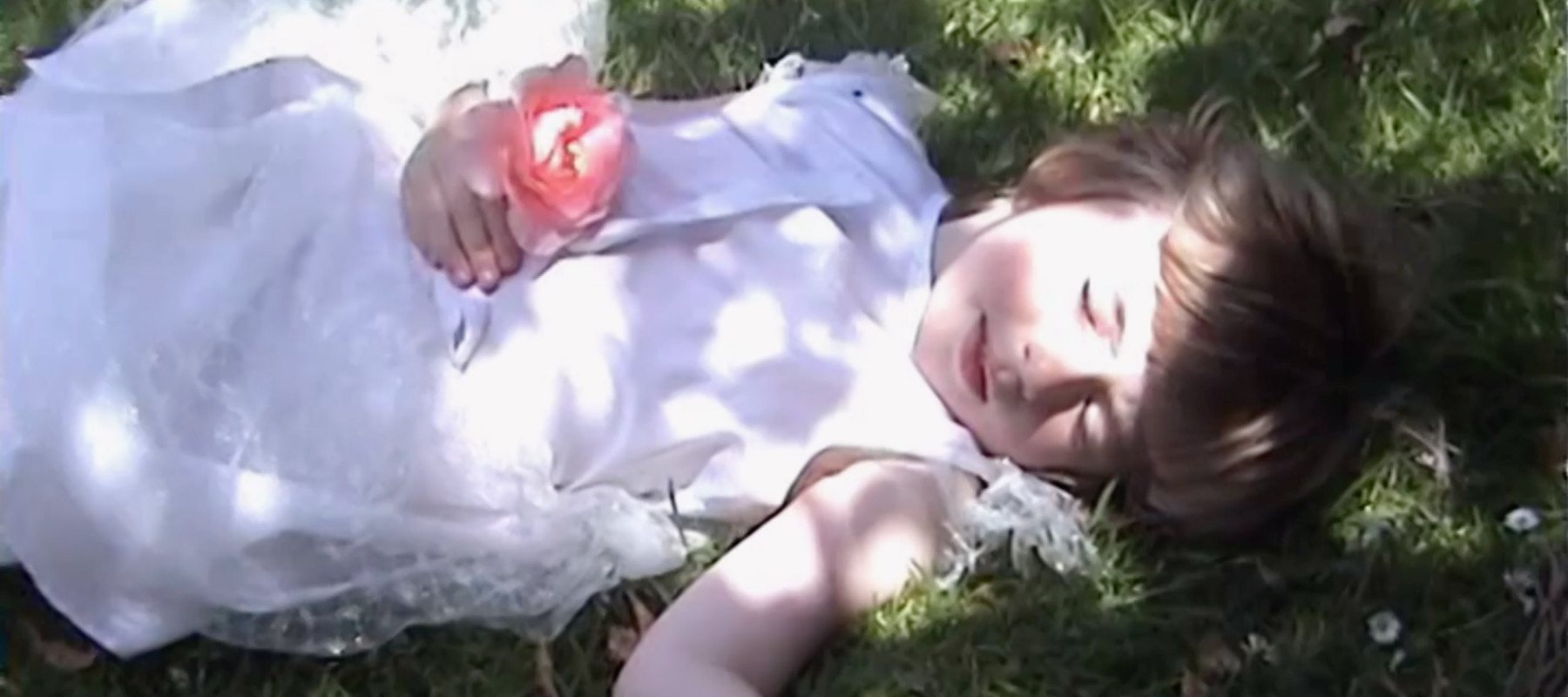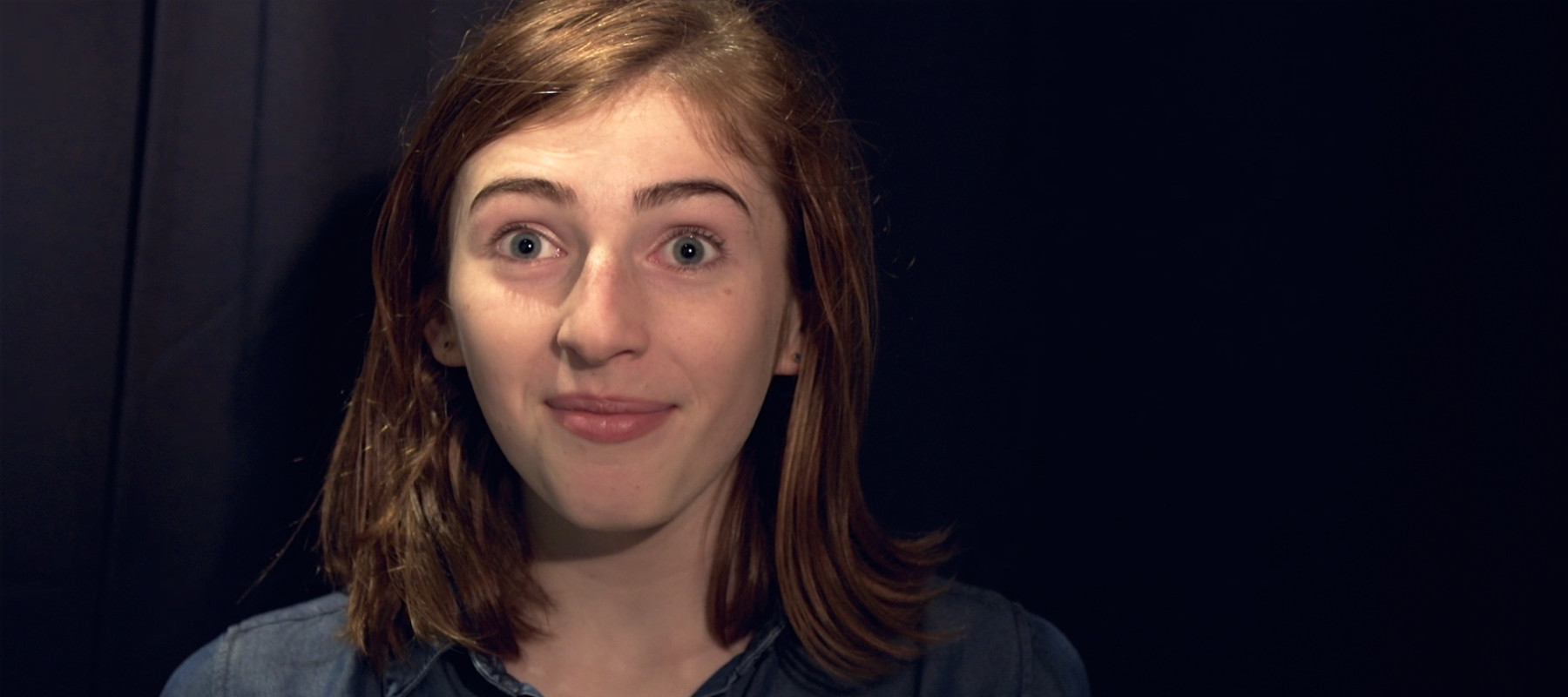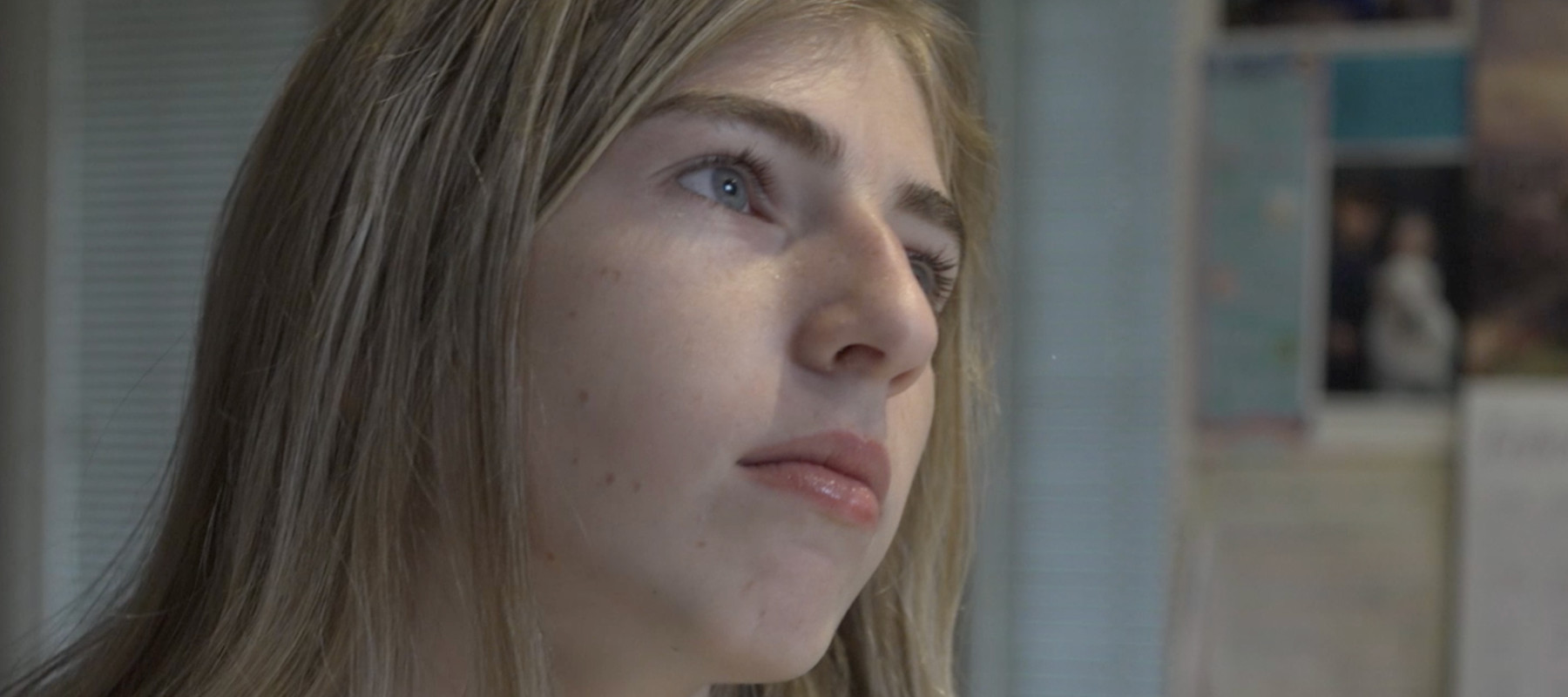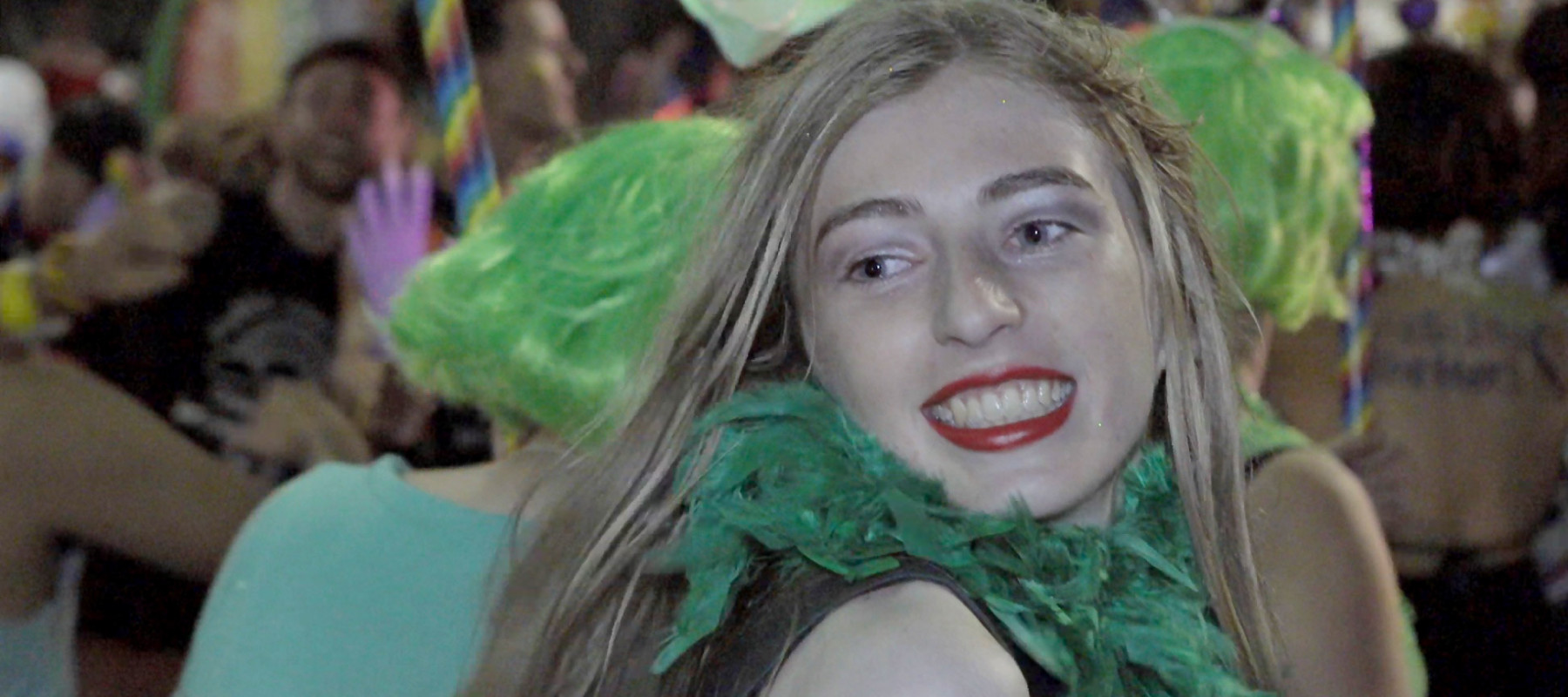Watching The Dreamlife of Georgie Stone with others can foster powerful discussion among groups of all kinds, including community health or youth organisations, medical or legal professionals, policy makers or politicians, high school or university educators, or advocacy groups for trans, non-binary, and gender diverse people of all ages.
Whether you’re watching with a room full of hundreds of strangers, a group of colleagues, at home with family or a ‘watch party’ with friends online, it’s inevitable that everyone you watch with will have a different relationship with the content of the story - so we hope that these suggested tips help build a bridge to share your learnings, deepen understanding, and move you to actions that support all young trans, gender diverse and non-binary people to live their dream lives.
Before organising a screening, watch the film and view this guide, especially the FAQ section.
Ensure you have access to the film on Netflix. If organising a watch party remotely, you can use Teleparty: https://www.teleparty.com/.
The film may evoke strong emotions or complex personal questions related to gender identity for some people, who it may not be possible to support during the screening. It is important to provide viewers with a list of qualified local support organisations or counselling services who have experience in the psychological, health, and legal issues specific to trans, gender diverse, and non-binary people. See our support orgs here.
Consider organising a panel discussion for after the film. This offers a platform for members of trans, gender diverse and non-binary communities to share their experience and any parallels between Georgie’s experience and their experience locally.
Show the film and share the film's key messages to those on the panel BEFORE the screening, so they have time to prepare.
Invite your guests!
Growing up as a transgender kid in Australia, I never really knew anyone like me. For a long time, I thought I was the only person in the world who felt the way I did. Despite having the support of my family, I felt isolated and alone. I couldn’t see a future for myself. So much of this, I believe, is because of the lack of positive trans representation on screen and in the media.
For me, this film is about taking the power back. To have agency over my story, for the first time in my life, has been such an empowering experience. I am thankful and grateful to the older generations of trans people who paved the way to create a more accepting world where young people like myself can grow to become our true selves. Whilst this story is my own unique personal experience, our communities are rich with diversity and the trans experience has been a part of our First Nations peoples history for an incredibly long time. I want to extend my thanks and respect to Sistergirls and Brotherboys across these lands.
In Dreamlife, I want to portray my journey from a kid who felt so isolated and alone, to a young woman who is finally asserting control over her life, her body, her story. I want to show people the importance of a supportive family, and what that can do for a trans person. I want people to see the trans experience as not black-and-white, but nuanced and multi-faceted. It’s lonely and difficult, but also euphoric and beautiful too. There are times we want it to all go away, and times we are so proud to be ourselves we could explode! And most of all, I want other trans people to see that they have a future. You can be ambitious and dream big. Our trauma doesn’t define us, and it won’t last forever. We deserve to have a wonderful life.
I’m really excited to have the opportunity to tell my story honestly and openly. I don’t pretend to represent all trans experiences. Everyone’s journey is different. This is mine, and I hope you find something in it.
"We know who we are” - we must listen to and lead with the voices of trans, gender diverse and non-binary young people
Trans, gender diverse and non-binary youth need agency over their own bodies, narratives and lives
Trans, gender diverse and non-binary youth need to be safe from prejudice and discrimination
This film is not about becoming a girl or woman, it’s about Georgie becoming herself
Trans, gender diverse and non-binary youth need support from their families and communities to thrive
Georgie’s story does not represent all transgender experiences. This film is her story, and only one of many diverse stories about transgender people
Note: Consider sharing the film’s key messages before opening the discussion.
Opening questions
These questions invite the audience to connect personally to the film.
What line, scene or moment was moving or surprising for you? Why do you think this was?
Were there moments when you felt you could relate to Georgie or her family’s experience? What were they, and why?
What were you wondering as you watched the film? Were there any questions you wished you could ask Georgie or her family? See the FAQ, where many answers are provided.
Going Deeper
These questions invite the audience to reflect on the film more closely in relation to three key themes: agency, identity, and dreaming.
Agency
While they are in the car, Beck says to Georgie: “It’s just you. It’s just for you.” What messages were there in the film about young people having agency? How do you think having supportive family impacts the experience of young trans, gender diverse and non-binary people? What can we learn from this? See FAQ Questions 5, 6, 7, 14
Georgie says, “I can’t get female hormones without the permission of the court. They give the orders and it’s not in the power of the doctors, parents, or me. I don’t have the right - legally - to make that decision.” Gaining agency and the power to make decisions for yourself is an important theme of the film. Why do you think it’s important that young people have agency and power over decisions about their own lives? What can young trans, non-binary and gender diverse youth gain from having autonomy over their own bodies and access to affirming medical care? Do you know what the state of gender affirming health care is in your own country or state? What structures or laws either enable or inhibit the agency of young people in your country? See FAQ Question 10, 12, 15
Georgie says, “To have a complete stranger having to make a decision about my body was really distressing, and I felt really powerless.” Why do you think that Georgie and her family kept fighting for young people to have the legal right to access gender affirming health care, even after Georgie won the long legal fight to access it herself? How might not having access to gender affirming health care impact young people? See FAQ 10, 12, 13
Identity
At nine years old, Georgie says: “I’ve always known who I am. I’ve always been a girl.” At 19, she explains: “How I see my experience is that I have always been female, even when I was two and half and I had short hair and people said ‘he.’ I still see myself then as female, but I was assigned male at birth.” How does the film explore the themes of memory and identity? What parts of your own identity have remained consistent over the years?
When Georgie’s dad asks, “How do you feel about the medical treatment that you want to have?” Georgie replies: “I feel good about that, because I won’t grow into a boy … I’ll be myself.” What do you think the film is saying about “being yourself?” How can adults - including health care professionals, educators, and families - support young people to “be themselves”? See FAQ Questions 7, 15, 16, 17
Georgie says, “When people find out you are trans, they often make assumptions about what your life has been like.” What assumptions are made about you, in your own life? How does this make you feel? What strategies can you use to avoid making inaccurate assumptions about others? See FAQ Question 20
When asked how he feels about having a sister, Georgie’s brother Harry says: “When we’re playing super-heroes… there’s now a girl superhero and a boy superhero… It’s more fun having a girl around then just two boys.” What is the benefit of having difference and diversity in relationships and in society? What can adults learn from children about acceptance and identity? See FAQ Question 11 & 18
Dreaming
What do you think the film title, The Dreamlife of Georgie Stone, means? What does the editing of the film, which weaves an elliptical narrative through Georgie’s memories, suggest about dreaming? See FAQ Question 1
Georgie says: “It’s very surreal for me to think that for most of today I’ll be asleep. And I keep thinking of the moments that have led me here.” What messages were there in the film about dreams, and the moments that make us? What has been an important moment for you, that has helped you achieve your dream life?
Closing Questions
These questions are designed to move towards action planning. Consider sharing the film’s Key Messages before inviting answers to the Closing Questions.
What’s something you learned from watching The Dreamlife of Georgie Stone? Is there anything you learned that you would like to share with others?
Who else do you wish would watch the film, and why?
How can you be a good ally to trans, gender diverse, and non-binary young people? See FAQ Question 20
Thinking about your own communities and sphere of influence, how can you contribute to the personal, structural or systemic change needed to ensure that trans, gender diverse, and non-binary youth can have agency, access gender affirming health care, and live their “dream lives”? See Dreamlife Film/Take Action for ideas.
Go to https://dreamlifefilm.com/take-action to support Georgie’s change goals
Donate to Transcend Australia, or a local organisation advocating for or supporting trans, non-binary and gender diverse young people
Host a watch party of the film with your family and friends. If you are organising a watch party for friends or colleagues remotely, you can do this remotely with Teleparty: https://www.teleparty.com/.
You can read more answers from Georgie, Beck, Dr Michelle Telfer and the film team here: (link to Frequently Asked Questions)




